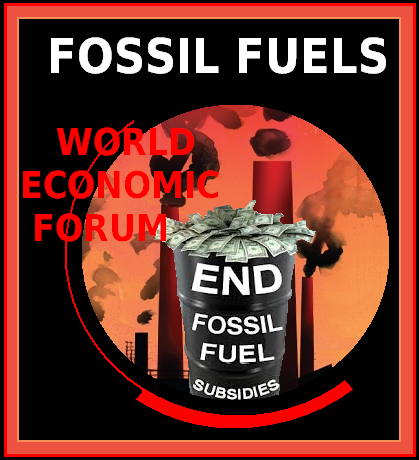Carbon pricing and fossil fuel subsidies were popular topics at the World Economic Forum (WEF) in Davos, Switzerland. The comments made by economists, business leaders and climate experts signal a global readiness to price carbon and remove oil subsidies.
Investors and business leaders need and want regulatory certainty. Regulations on fossil fuels are coming the only question is when. Climate economist Lord Nicholas Stern was among those who argued that we need to see carbon taxes and eliminate oil subsidies.
If we are to get serious about tackling climate change we will need to curb fossil fuel use. One of the best ways to do so is through carbon pricing schemes. Rowan Douglas, CEO Capital, Science & Policy Practice and Chairman, Willis Research Network, said, "Carbon pricing is a very important tool in the armory. I think it is difficult to see the world achieving its targets without some sort of pricing mechanism for this critical pollutant."
Stern said, "Those of us who think that market economies work well, are also those who think when we see a major failure like this that the right thing to do to get the markets to work well is to correct it. And there’s a very simple correction: it’s carbon pricing. It can raise revenues for all the important things we have to do, like enhancing the life of poor people, [and] investing in innovation, health and education." He also said, "If you want to put a carbon tax on, now is absolutely the right moment."
Rachel Kyte, World Bank Group, Vice President and Special Envoy for Climate Change said, ‘We want carbon pricing. If you price carbon, we will be able to reduce emissions,’ then that will be a powerful message." World Bank President Jim Yong Kim urged governments around the world to agree on a pricing system for climate-changing CO2 emissions.
We are seeing momentum build for some form of carbon pricing scheme. Kim noted there had been progress over the last 12 months, including the UN general assembly’s commitment to set a carbon price. The head of Unilever, Paul Polman explained that businesses are also getting on-board, "50 of the top-200 companies now have an internal price for carbon. In New York, we had 1,000 businesses who signed a statement calling for a price on carbon."
In the US the Republican controlled congress stands in the way of carbon pricing. As Al Gore said in Davos, "We need to put a price on carbon and we need to put a price on denial in politics."
In addition to carbon pricing we also need to eradicate fossil fuel subsidies. Richard Branson, founder of the Virgin group said, "We have to make sure there are no more coal-fired power stations built anywhere in the world from today onwards. And we’ve got to get rid of all fossil fuel subsidies.”
Nobel Economics Prize laureate Michael Spence talked about progress being made removing oil subsidies in the developing world. "Fortunately, they [oil subsidies] are in the process of disappearing. Energy subsidies are a catastrophic policy. They produce a distorted development of the economy and all kinds of bad things."
Related
WEF Summaries: Climate Change
Towards a Global Climate Agreement at COP21 (WEF Summaries)
Business Leadership on Climate Change (WEF Summaries)
The Value of Investing in Climate Mitigation (WEF Summaries)
Global Economies Feeling the Heat from Climate Change (WEF Summaries)
Collaboration and Cooperation are Imperitive (WEF Summaries)
What is The World Economic Forum (WEF)
Risks Associated with Environment, Climate, Water Crisis and Extreme Weather in the WEF Report
Home
action
Business
climate change
commerce
economics
economy
emissions
environment
GHGs
Global
Global Warming
greenhouse gases
trade
world
Curbing Fossil Fuels - Carbon Pricing and an End to Subsidies (WEF Summaries)
- Blogger Comment
- Facebook Comment
Subscribe to:
Post Comments
(
Atom
)

0 comments:
Post a Comment